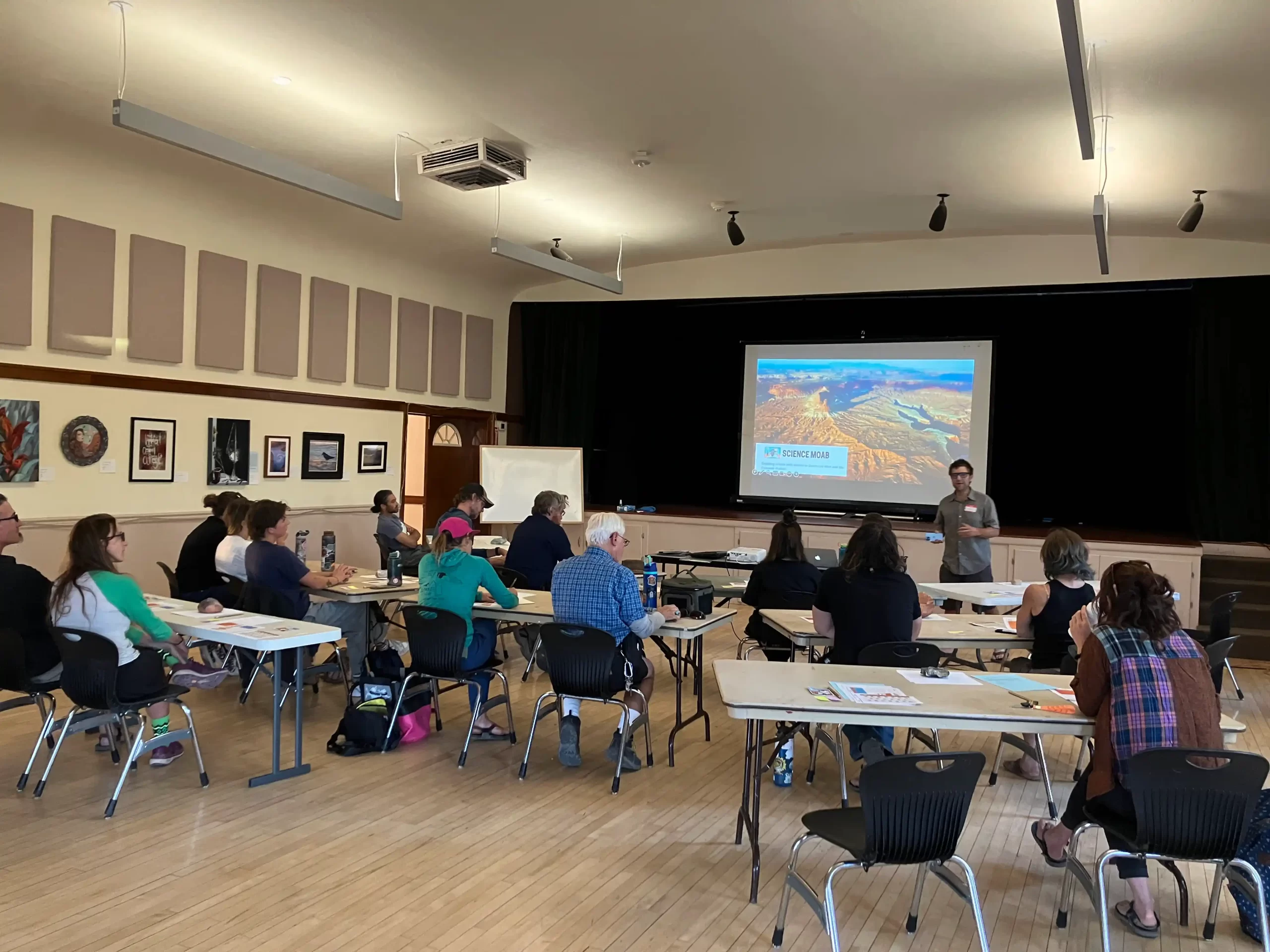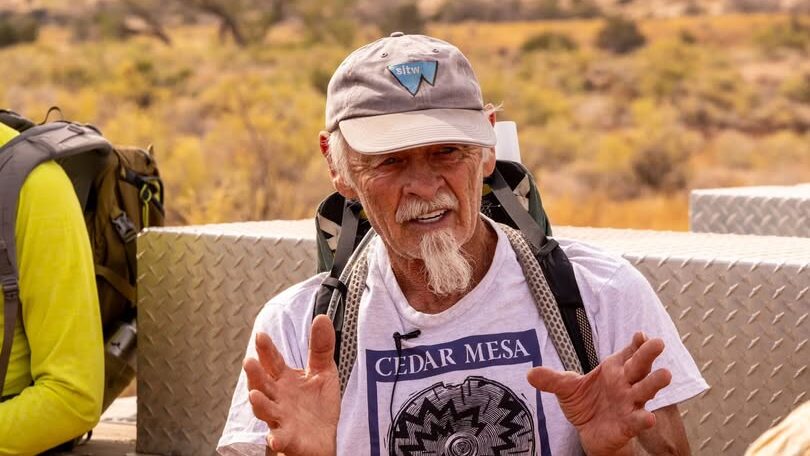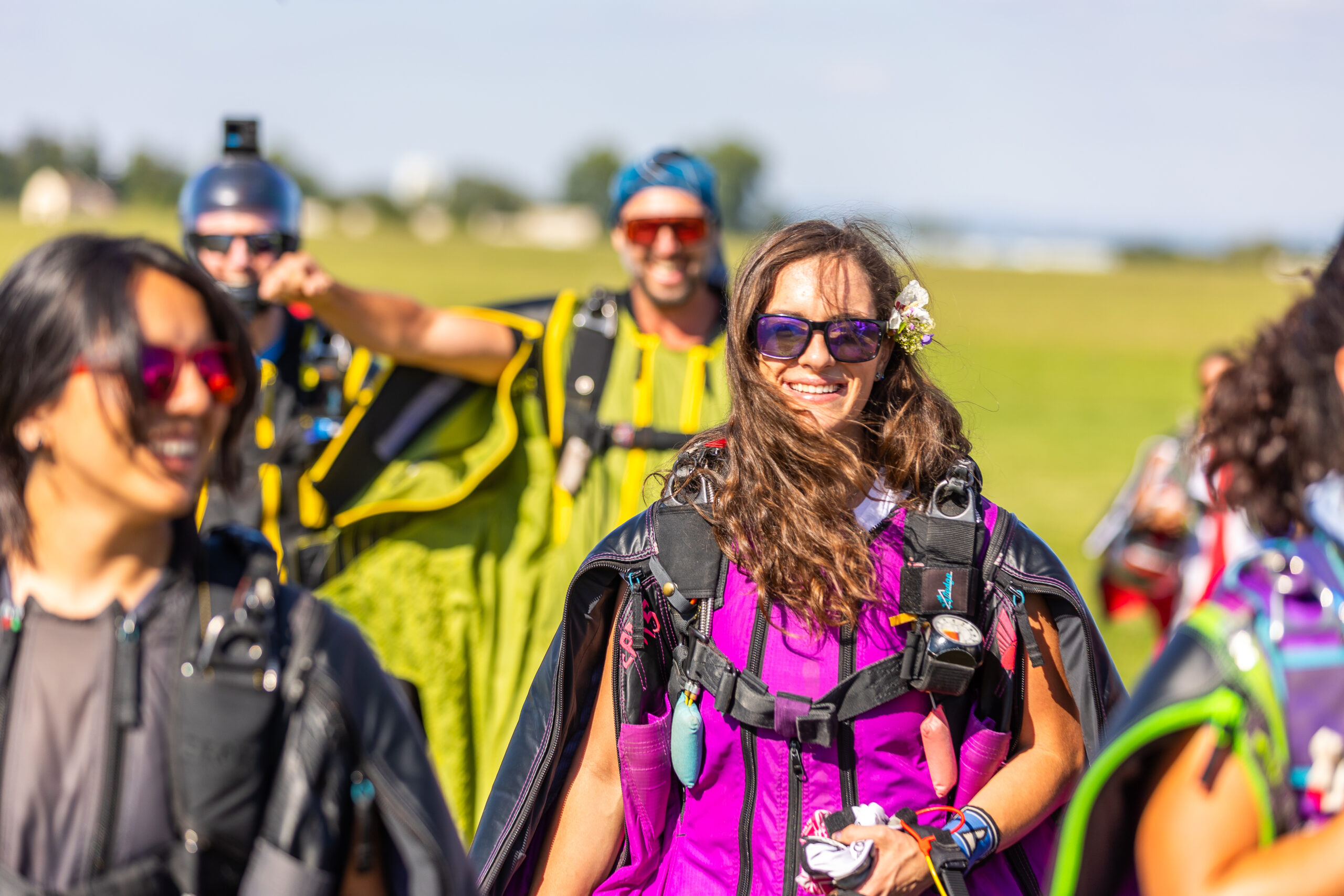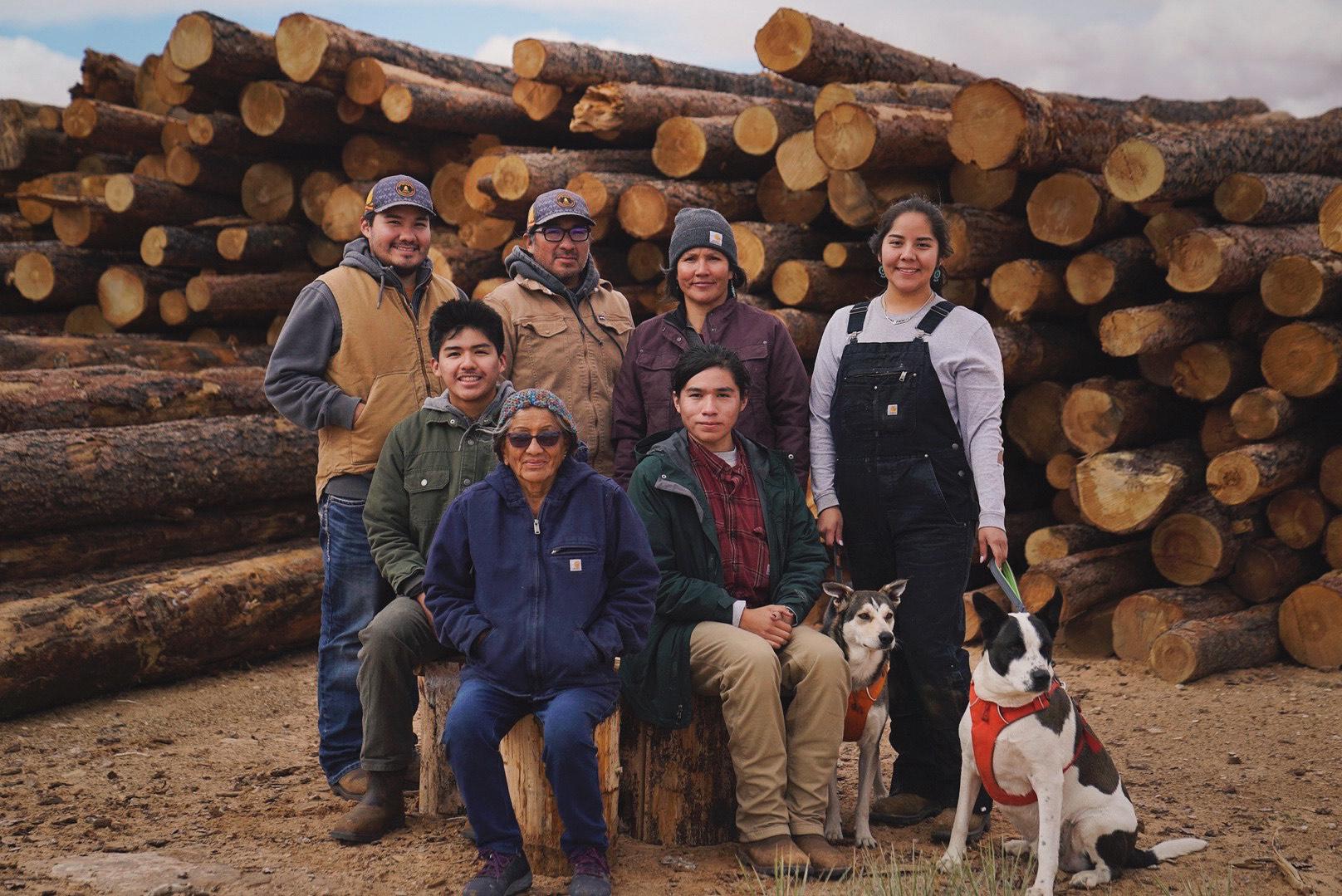Some information may be outdated.
Science Moab has been running Science Certified, a customizable science communication training for outdoor recreation guides, since 2021. Now, they are piloting a mini-series program to offer a more affordable path to certification for individuals and small businesses.
Science Moab’s certification program teaches recreation and outdoor guides how to communicate the environmental science of the Colorado Plateau. This way, they can help visitors leave with an appreciation and understanding of how things came to be, how things are now, and what this area might look like in the future.
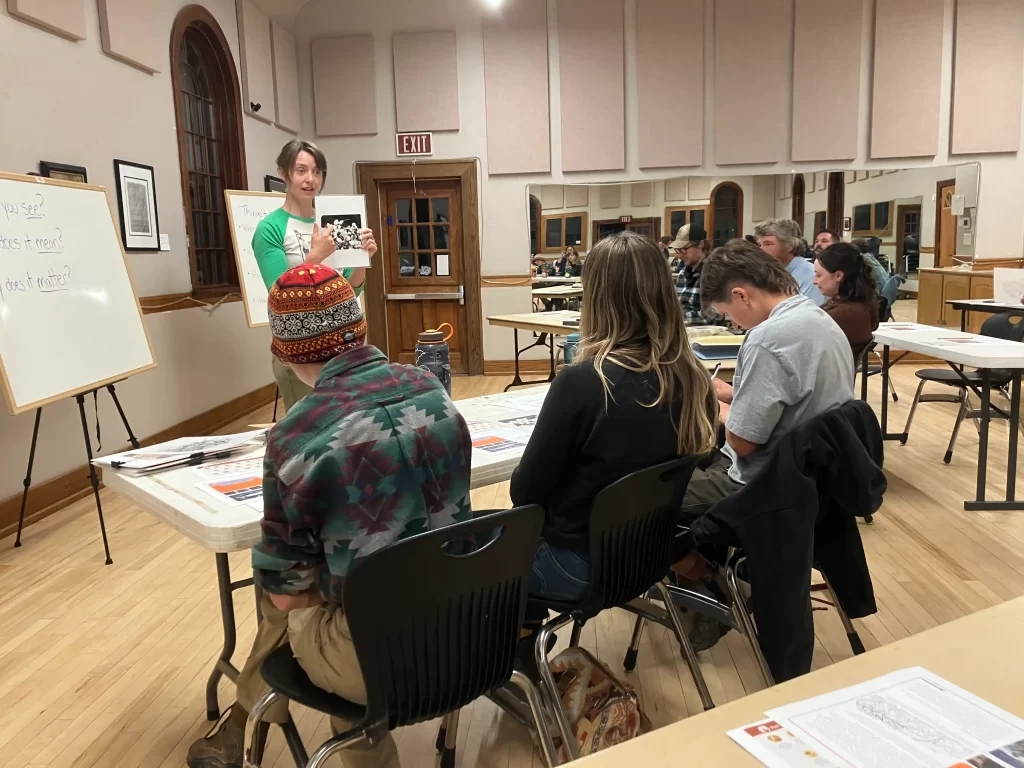
Carrie Schwartz, executive director of Science Moab, says the Science Certified programs are “geared toward helping locals learn how to communicate the science of this place authentically and engagingly so that visitors can become stewards of this landscape.”
The Science Certified program is a full-day, in-field training in which companies can enroll their employees. After running the program successfully for many years, the Science Moab team is expanding its offerings to include mini-series programs. This is primarily in response to feedback they received from individuals and small companies looking for options with a smaller time commitment and lower pricing.
The Science Certified mini-series was piloted last month in two sessions designed to train participants in geology and bio-crust. Each session included the Visit With Respect mini-module, which was shared by and adapted from Bears’ Ears Partnership’s existing Visit With Respect curriculum.
As with the full Science Certified offering, the mini-courses were taught by instructors with a master’s degree or above in their area of study.
Twenty-five guides from 18 different companies and agencies participated in the two sessions.
“The vast majority of those companies had not participated in Science Certified before, so that felt really good to be able to connect with new guides,” Schwartz said.
Jarrod Ross, a senior guide at Good Trip Adventures, attended the session focused on bio-crust.
“Every time I’m around someone who has dedicated their career to one topic, narrowed their focus to a sliver of the natural world, I walk away amazed, enthused, and wishing I had the exposure to any of this when I was a young adult,” he said. “I certainly had that experience with [Science Moab] and I look forward to catching some more trainings in the future.”
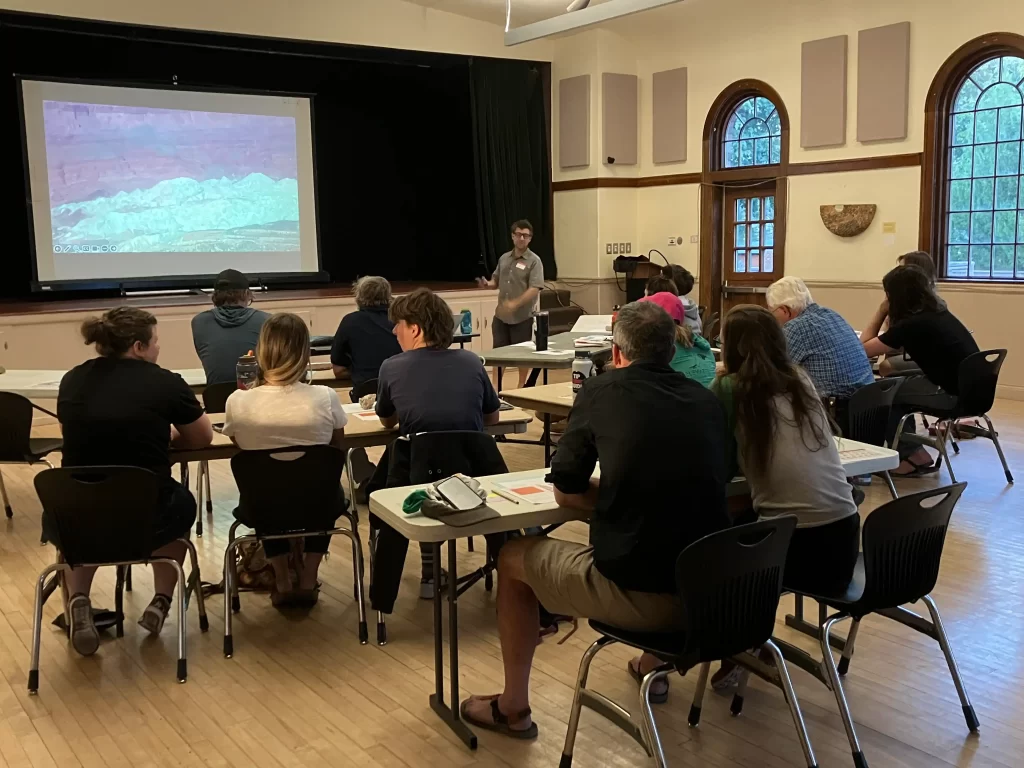
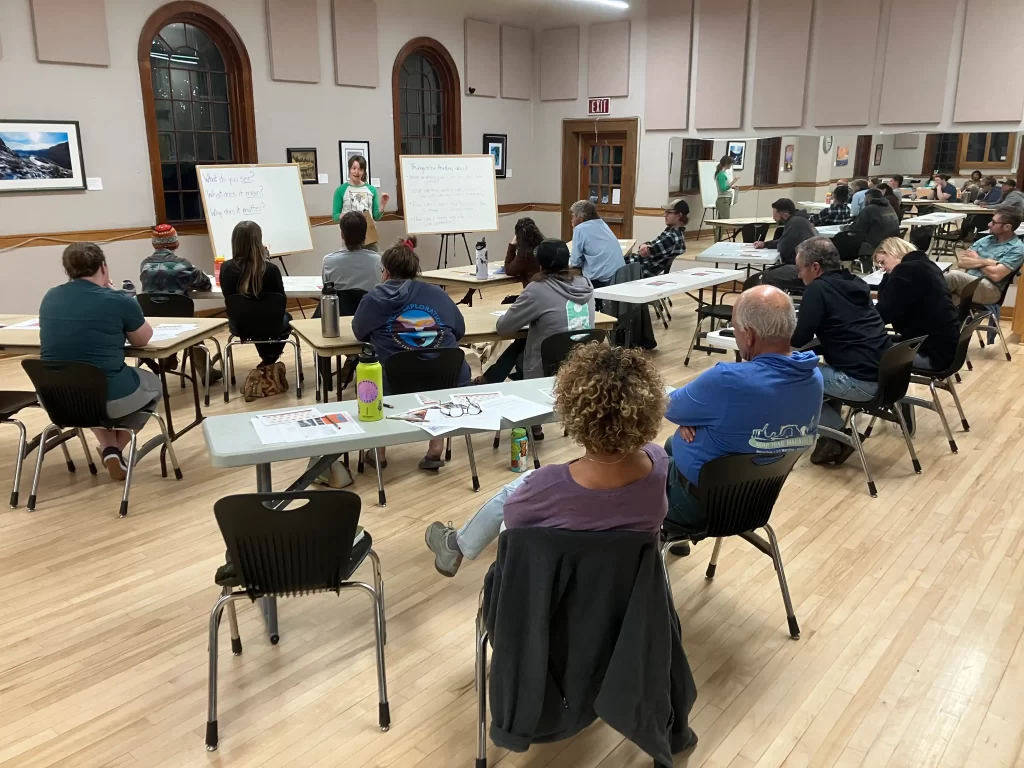
Another guide who took the training, Richard (Rusty) Rice, of Capt. Rusty’s Adventure Outfitters, said, “Before the class I could explain biocrust based on memorization, now I can explain it based on understanding.”
Teaching guides how to communicate the science of Moab and the surrounding area has been a primary goal of Science Moab since its inception. With an increasing amount of natural resource use and tourist visitation each year, the fragile environment is under constant duress.
“It’s amazing to get to share the wonder of this place with people,” Schwartz said, “but there’s a lot of harmful behavior that stems from lack of knowledge.”
Local outdoor recreation guides have a large part to play in helping visitors interact with the environment healthily and sustainably, which keeps both the visitor and the ecosystem safe.
The Science Moab staff saw a gap in knowledge and resources for local guides. “We didn’t have the professional development opportunities available to ensure that every guide felt confident in really communicating the science of this area and teaching people how to recreate responsibly here,” Schwartz said.
The Science Certified program, and now the mini-series offerings, address that lack of local professional development opportunities by offering science communication training for outdoor recreation guides.
Schwartz is hopeful that the next round of the Science Certified mini-series will be conducted in spring, toward the beginning of the tourist season. Anyone interested in participating can follow along on the social media accounts, visit their website, or reach out to them for more information.
Appreciate the coverage? Help keep local news alive.
Chip in to support the Moab Sun News.


